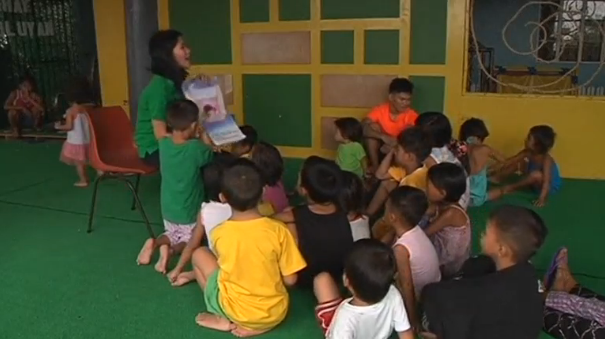
MANILA, Philippines (Reuters) — Fourteen-year-old “Bryan” sat looking behind the window’s grills of a government-run juvenile center on the outskirts of Manila.
Not wanting to reveal his real name, Bryan was arrested by the police during a drug raid in September and was required to stay at the government’s “House of Hope” for a year.
Life was not bad, he says, because he was being taken care of by social workers and was taught lessons like a regular child.
They hold daily gatherings and are encouraged to share their stories without being judged by others.
But that condition could change when a bill lowering the criminal liability of children is passed into law.
Lawmakers are rushing to pass a bill which lowers the criminal liability of minors from 16 to as young as nine years old.
Philippine President Rodrigo Duterte claims that many syndicates are using children and teenagers to commit crimes and are being used as drug mules.
That bill could affect Bryan and will give him a criminal record even if he desires to change.
“People make mistakes, especially children. Some children don’t really know that getting involved in drugs is wrong. They think if their friends encourage them, it’s okay. But to be labelled as criminals, I think that’s really wrong. It hurts. For me, if I’m called a criminal, it really hurts,” he said.
Duterte, a former crime-busting mayor in southern Philippines, has vowed to eradicate drugs in the country.
Police data between July 1 to August 28 this year showed that more than 20,000 people below 18 have surrendered to authorities for possessing narcotics.
Since taking office on June 30, more than 5,000 people have been killed in his drug war. Police say 2,004 have been killed by officers in self-defense, with another 3,060 killings are “under investigation”. Human rights group say those in the latter group were extrajudicial killings.
April Amistoso, a social worker who helps out at the non-profit children’s center Bahay Tuluyan, says imprisoning children is not a “quick fix solution”, but that authorities should instead focus on eliminating poverty and improving rehabilitation measures for children.
Her group, which takes in street children and helps with taking care of minors in conflict with the law, employ counselling and positive reinforcement as a means of rehabilitation.
“If we punish children, later on when they grow up, that will produce the same outcome. They will punish others also. So they’ll be labelled as criminals. But if we help them, they could be a good factor in the community,” she said.
Filipinos expressed mixed opinions regarding the proposed change in the law.
“Today, kids are being used in crime, but it should be the parents who gets charged for it, not the children, because their kids are their liability,” university student Daniel Fallow said.
“For me, the age should be 12 years old and above, but lower than 12, I think they shouldn’t be sent to jail yet. Children above 12 years old already have the discernment to tell what’s right and wrong,” said retired police officer Venerando Australia.
Duterte says the country is “producing a generation of criminals” unless drug and crime syndicates are stopped.
Along with the criminal liability bill, Duterte has proposed a nationwide curfew for minors and the revival of capital punishment to deter Filipinos from getting involved in drugs.







